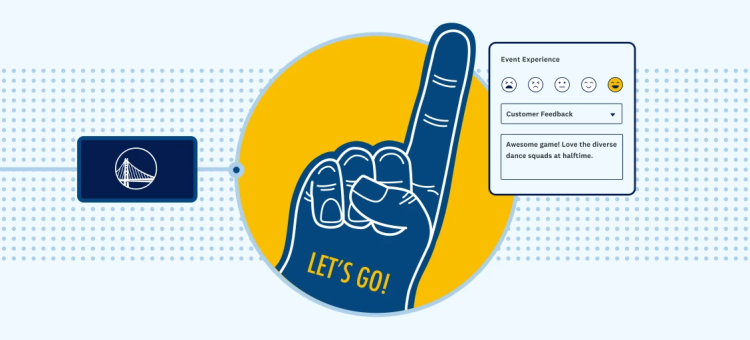Last week, SurveyMonkey released our third annual consumer ranking of the top 75 Fortune 500 companies. The goal was to understand how people feel about the biggest companies in America and see how those feelings changed over the years.
The survey asked 19,860 people to rank companies by several factors, including:
- how much positive change they bring to the country
- how influential they are,
- how nice they’d be to work for, and
- how much they care about their customers.
This same survey was sent to similar sample populations in 2016 and 2017. Over the course of three years, some findings were fairly consistent (millennials want to work in tech!), some changed a little, and some jumped around significantly. Here’s a high-level overview of those trends and changes.
The three-time reigning champs

Tech companies remain the clear favorites, for all three years, across almost every metric we asked about. Alphabet (Google), Microsoft, Amazon, and Apple appear in the top 10 companies that people want to work for and the top 10 list of “companies with the most positive impact” for all three years.
All three companies are also among the top five most desirable employers for people who prioritize diversity—something we started measuring this year. This could be the result of tech companies making major diversity pushes over the past year. Apple, which was ranked number one in our study, recently hired a new vice president of Diversity and Inclusion, and made a public effort to increase diversity it’s diversity hiring.
Interested in learning more about how to think about and measure inclusion?
Our head of diversity and inclusion wrote about how to measure inclusion and belonging, and why that's important.
Another industry that America seems to love, a little more surprisingly, is shipping. In both 2017 and this year, both UPS and FedEx appear in the top three companies that respondents ranked as “having a positive effect on the country.” Both also appeared near the top of the list for most trustworthy in 2016 (#4 for UPS and #14 for FedEx). It’s worth noting that FedEx has scored among the top 20 customer service providers on the American Customer Satisfaction Index, and UPS is piloting programs that make receiving packages more convenient. Clearly, companies that prioritize customer centricity and innovation are public favorites.
The only other company to get a consistent, glowing response across categories was Disney, with absolutely magical numbers across the board from 2016 to 2018. (In 2018: #5 on the most desired employer list, #6 in most positive impact, and #3 on most customer-centric companies, among respondents who valued trust the most.)
The markets that have fallen from favor
Other types of companies don’t stay quite so stable. JP Morgan Chase was ranked the “most influential” company in 2016, then abruptly fell to #73 in 2017, when it was also ranked #3 on the list of companies with the worst impact on America. (It didn’t make any top 10 lists in 2018, either, but it also avoided being in the bottom.)
Why the dramatic changes? Did JP Morgan have some terrible scandal in early 2017? Nope. In fact, it had the most profitable year in the history of banking. However, the shift might suggest that people extend their feelings about industries as a whole to each specific company. In terms of publicity, 2017 wasn’t a bad year for JP Morgan, but it was a very bad year for finance.
Wells Fargo employees infamously betrayed their customers’ trust by making fake accounts, which lead to a massive media storm about untrustworthy bankers. The Equifax security breach cost almost 150 million Americans their personal privacy. It’s possible that all the bad news about financial institutions caught people’s attention...and left a bad taste in their mouths.
The negative perception of financial institutions seems to have continued—in 2018, the 10 companies with the most negative change included: Financial Bank of America, Prudential Financial, Morgan Stanley, Citigroup, Wells Fargo, Fannie Mae, and Freddie Mac.
The exceptions to the rule
Even though public perception does generally seem to clump companies together (tech—good, finance—bad), categories aren’t a guarantee of consumer sentiment one way or another. Walmart was at very the bottom of most lists in 2016, 2017, and 2018, but another retailer—Costco—made the top 10 “most positive impact” companies in both 2016 and 2017.
Even more impressively, Berkshire Hathaway—Warren Buffett’s legendary holding company—managed to break the stigma against financial institutions and shot up 27 places in our ranking to be 1 of the 10 companies Americans would most like to work for.
There were other outliers each year, too. In 2017, Caterpillar was one of the companies millennials were most excited to work for (#8). In 2018, Boeing was one of the companies considered to have the most positive effect on the country (#4).
Ultimately, companies that invest in their company culture, their customer service, and marketing efforts that communicate those values come out on top.
Create messages that resonate
Do your own concept testing with surveys to get a closer read on the audiences that you want to talk to. Our comprehensive guide explains how.



